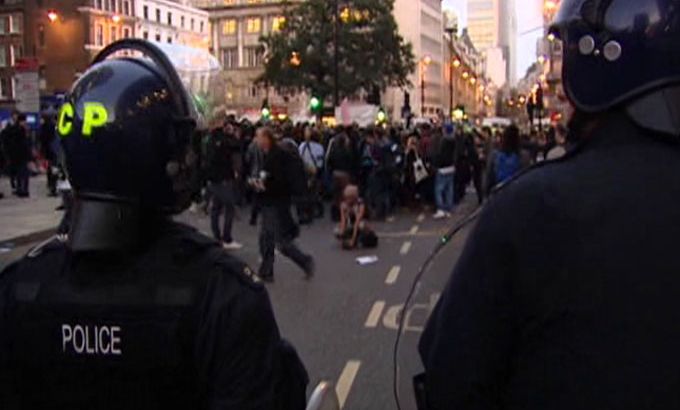Olympics strain British spy agencies
Parliament’s security committee says pressure caused by preparations for the games is a “critical challenge for all”.

Britain’s intelligence agencies have come under intense pressure as the country stages its largest ever peacetime security operation ahead of Olympic Games in London, legislators have said.
The disclosure was made on Thursday amid anger over massive presence of security forces on the streets.
But parliament’s intelligence and security committee defended the deployment, saying in its annual review that al-Qaeda and its affiliated groups, along with armed groups opposed to the peace deal in Northern Ireland, still posed significant security threats to the UK.
The committee, which oversees intelligence agencies, said successful counter-terrorism work was paying dividends.
“The Security Service considers there are signs for cautious optimism, with the number of attacks on national security targets falling in 2011,” Malcolm Rifkind, the committee’s chairman, said.
But he added that intense preparations for the Olympic Games, which start on July 27, had put a strain on the work of domestic intelligence agency MI5 and posed a “critical challenge for all concerned”.
‘Thorough preparations’
The Home Office, the ministry responsible for Britain’s domestic security, said the extra burden would not put the country at risk.
“The Security Service prioritises its resources to meet the highest threats day in and day out and has made lengthy and thorough preparations to meet this summer’s security challenges,” a spokeswoman said.
The committee’s review said the Arab Spring revolutions across the Arab world had dominated the work of Britain’s security agencies in 2011, adding that the developments had caught many within the intelligence community by surprise.
“We appreciate that it is often impossible to predict such events,” said Rifkind.
“However there remains a question as to whether, once events began to unfold, the agencies should have anticipated the possibility that the unrest would spread quickly across the region.”
Last month, MI5 chief Jonathan Evans said in his first public speech for two years that al Qaeda militants were using countries which toppled dictators during the Arab Spring as bases to train radical British youths for attacks on Britain.
“The Security Service has reprioritised its work to enable them to counter potential threats from al Qaeda and its affiliates; (Irish) Republican dissidents; hostile states and others in the run-up to or during the Games,” Rifkind said.
“This, combined with the burden of the accreditation process (for the Games) and related work, has placed the Security Service under significant pressure over the past year.”
The committee also said cyber attacks presented a serious risk to Britain’s security and questioned if enough progress had been made on plans for a $1bn National Cyber Security Programme announced 18 months ago.
“More needs to be done if we are to keep ahead in this fast-paced field,” Rifkind said.